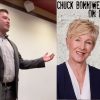This year was the second year in a row that Colorado Republicans have attempted to pass legislation criminalizing abortion in Colorado. Rep. Scott Bottoms’ (R-CO Springs) bill, “Abolishing Abortion in Colorado,” was a repeat of former Rep. Dave Williams’ (R-CO Springs) bill in 2022. Both bills featured testimony from Jeff Durbin of End Abortion Now and members of Colorado Right to Life, and both bills died in Democrat-controlled committees.
Last year, a version of Williams’ bill was introduced in Louisiana as House Bill 813 and cleared its committee, sparking backlash from over 70 so-called “pro-life” groups who opposed legal consequences for people receiving abortions, which ultimately doomed it. This year, Durbin estimates that abortion abolition legislation, which calls for equal protection under the 14th amendment to be applied to fetuses and embryos, will appear in as many as 15 states. South Carolina’s House Judiciary Committee is set to hear House Bill 3549, the South Carolina Prenatal Equal Protection Act of 2023, in the coming weeks.
These bills are the results of organizing efforts from the group Abolish Human Abortion, whose grisly signs featuring dismembered fetuses or the mutilated backs of African slaves are a common sight at both anti- and pro-abortion events, and the 501(c)4 Free the States, based out of Norman, Oklahoma. Operated by T. Russell Hunter, James Silberman, and Rachel Burkey, Free the States produces podcasts, pamphlets, art, and literature that is driving the nationwide abortion abolition movement.
Last weekend, approximately 300 abortion abolitionists, including members of Colorado Right to Life, assembled in Wichita, Kansas, for Free the States’ fourth annual “Abolition Now” conference.

The decision to hold their conference in Wichita was based on a variety of factors — Kansas’ historic connections to the slavery abolition movement, which was Hunter’s ideological inspiration, but also the fact that Wichita is home to two abortion clinics, making it a destination for patients seeking care from states with bans in effect. Throughout the week, activists, like Jared Burdick of Abortion is Murder Kansas, lamented the volume of abortions, both medication and procedure, that occur in Wichita.
Zack Gingrich-Gaylord, the communications director for Wichita’s Trust Women clinic, which provides abortion services, notes that their volume of patients has increased recently due to abortion bans in states like Oklahoma and Texas.
“We’re seeing around five hundred or more patients a month now,” he says. “60% of those are from Texas. We operate a clinic here in Wichita and one in Oklahoma City. When [Texas Senate Bill 8] happened, then our Oklahoma City clinic really took the brunt of that exodus from Texas. There was a study that came out of the University of Texas a few months after SB8 that showed Oklahoma received around 47% of the people leaving Texas to seek abortion out of state, and that was largely in our clinic there in Oklahoma City. When Oklahoma banned abortion in May of last year, 2022, ahead of Dobbs, [those patients] shifted up to Wichita. We had been seeing more Oklahoma patients in Wichita as appointments became crunched. It was like a cascade of people, but then, of course, Missouri, Arkansas, Oklahoma, Texas, all the ban states after Dobbs just really increased the demand on our clinic.”
Colorado abortion providers have experienced a similar uptick in patients in the last year.
Gingrich-Gaylord says the increased demand from out-of-state patients has significantly delayed patients’ access to care, leading to abortions later in pregnancy, which is problematic in a state like Kansas that has a 22-week abortion ban.
“The demand and the need for abortion hasn’t changed, it’s just there’s no more appointments in the region,” he says. “This is a really untenable situation in the long run.”
The abortion abolition movement is an explicitly Christian one, with its tenets noting that abortion abolition is biblical, providential, gospel-centered, and body [church] driven.
“We’re not just at war with abortion,” says Burkey. “We’re at war with any worldview that is raised up against the knowledge of God. The worldview that loves our sin and hates God is the worldview that gives us abortion, and so this is a worldview battle that we’re at.”
The worldview of the abortion abolitionists is an ultra-conservative, traditionalist worldview. “It’s also a sign that a people are under the judgment of God when women rule over them,” said Brett Baggett, an Oklahoma author and pastor, citing Isaiah 3:12, during his conference presentation on Friday. “This is a very unpopular opinion today, even among evangelicals, because you guys are all feminists and you don’t know it. You actually hate what God says about the roles of men and women not only in the home, but also in the church. You really hate what God says your role is in society — that women in civil government is actually a sign of God’s judgment on you.”
Roughly half of the conference attendees were women, and Burkey says the fact that all of the conference speakers are men is not an indictment of the abortion abolition movement. “To speak to the fact about this is being led by a bunch of men — I say, ‘Praise God,’” she says. “I love that so much. One of the significant lies I’ve seen in the pro-life movement is so many women leading by emotion, and so many women leading because they’ve had abortions in the past. What I’m seeing now in their fighting criminalization of abortion is many women are professing Christ in the pro-life movement, leading the pro-life movement, and they’re not actually repentant of their sin. They’re not recognizing it as murder and willing to call it back.”
The abortion abolitionists — comprised largely of Southern Baptists, Presbyterians, and other evangelical Protestant denominations — don’t just oppose abortion. Under their view that fetuses and embryos deserve protection under the 14th amendment, in vitro fertilization, in which 10-20 human eggs are harvested, fertilized and then implanted in the uterus or frozen for later use, is wrongful imprisonment for the embryos that are cryogenically stored, and murder for the embryos that are discarded.
“Roughly 12 million women are using hormonal birth control in the U.S. right now,” said Baggett. “All of which have an abortifacient mechanism, and all of which doubtless lead to millions of unreported baby murders each year. You add to that plan B. You add to that other forms of getting RU-486 [mifepristone] that are not counted — I think since 1973 we’re probably in the billions [of abortions] for the U.S. We play it down and just say 65 million reported abortions.”
The National Women’s Health Network notes, “The combination hormonal pill (‘the Pill’) uses estrogen and progesterone to prevent ovulation and thicken the cervical mucus. By preventing ovulation, there is no egg released from the ovaries to be fertilized. Furthermore, the thickening of the cervical mucus makes it hard for the sperm to enter the uterus and reach an egg. Through both of these mechanisms, fertilization is prevented and pregnancy never occurs.”

Leading the legal effects to enact the abolition of abortion is Texas-based constitutional attorney Bradley Pierce, who leads the Foundation to Abolish Abortion. Pierce is the author of the abortion abolition bills that have appeared in state legislatures across the country. On Saturday, Pierce advised the assembled abortion abolitionists on how to pressure — or oust — lawmakers who are hesitant to support abortion abolition.

“In a representative government what do the representatives do?” asked Pierce. “They represent not really the people, they represent the people who vote. That’s who they represent, and the people who can vote them in and people can vote them out.”
Pierce also promoted a precinct strategy for influencing local Republican parties in their respective states, a strategy promoted by former Trump advisor Steve Bannon that has proven dramatically effective in allowing grassroots activists to wrest control of state and county Republican parties from more moderate members of the party.
“The way they issue resolutions is through the County Republican party executive committee,” he said. “Depending on your state it can be made up of like five or 10 people, or it can be 50 people. It just depends on whether it’s all the precinct chairs or maybe it’s just a select few officers in the county or something like that. You need one of them to carry this [abortion abolition resolution] because they’ve got to introduce it, or you can run for that and become part of your County Republican executive committee.”
The Texas Republican Party included in its “Report of the Permanent 2022 Platform & Resolutions Committee” just such a resolution. The “Equal Protection for the Preborn” resolution states, “We urge lawmakers to enact legislation to abolish abortion by immediately securing the right to life and equal protection of the laws to all preborn children from the moment of fertilization, because abortion violates the US Constitution by denying such persons the equal protection of the law.”
Williams, who sponsored Colorado’s first abortion abolition bill, is currently in the running for Colorado Republican Party Chair.
While the abortion abolition movement is working to promote legislation based on Christian morality, they should not be confused with the Seven Mountain Dominionists of the New Apostolic Reformation — composed of Pentecostal and charismatic Christian denominations.
“I would understand how it kind of looks very similar,” admits Hunter. “If you asked me point blank, ‘Are you a Christian nationalist?’ I’d say no. … I can see why it would seem like kind of the same thing. For instance, I don’t believe that America was founded as a Christian nation. You hear a lot of those people are like, ‘This is as a Christian nation, we need to get back to that.’ It wasn’t this Christian nation. They made sure in their founding documents to say nothing about Jesus, and that was the debate. People brought it up. People wanted that. There were people that were kind of like, ‘Let’s acknowledge King Jesus,’ and then some other founding fathers, some of them Christians, some of them Deists, some of them Unitarians, all the array of them were like, ‘No, we’re not going to do that. We don’t want that.’ They were they were they didn’t want to elevate a state religion. … The fact of the matter is that if we were really founded as a Christian nation, we wouldn’t have slavery protected in our documents. If it said ‘We the people, the United States, are founding a Christian nation’ those David Barton types would have a point, but they’re actually wrong. They’re historically wrong.”
For the abortion abolitionists, abortion is a sin that should be criminalized, and the nation should repent. “We believe that people are bad and they can become good,” Hunter says. “Well, not perfect, but they should strive to be good, as a nation. We weren’t founded as a Christian nation, but we can become more Christian than we were, and we should strive to do that.”
This is Part One of a multi-part series on the abortion abolition movement. Read Part Two here. Read Part Three here.




